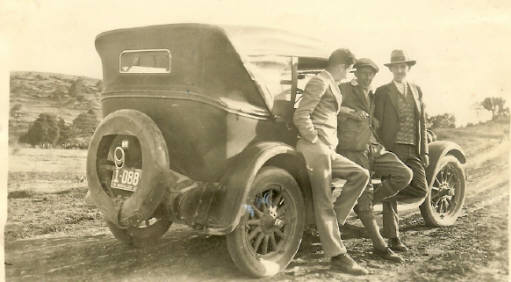
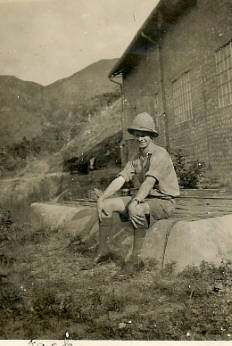
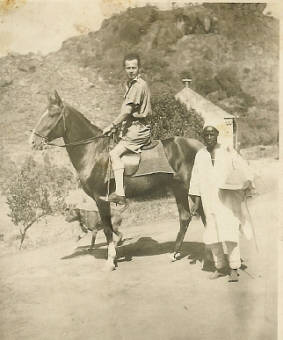
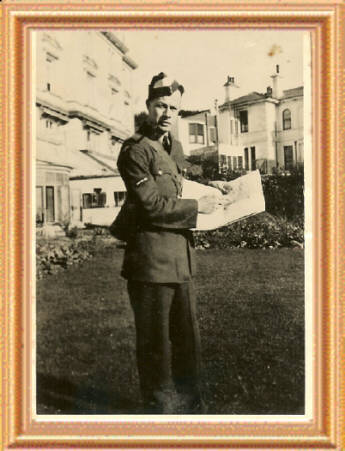
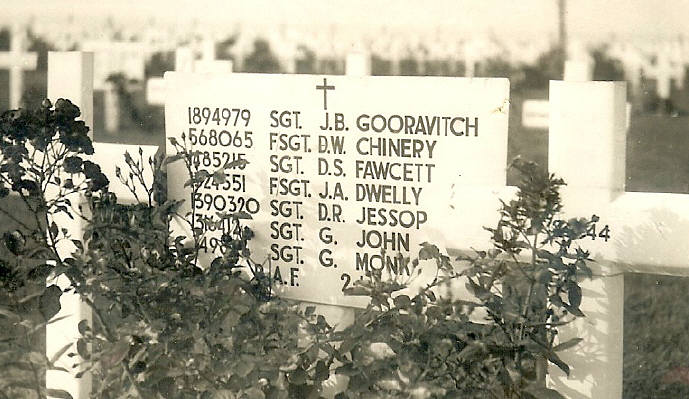
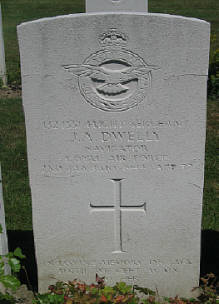
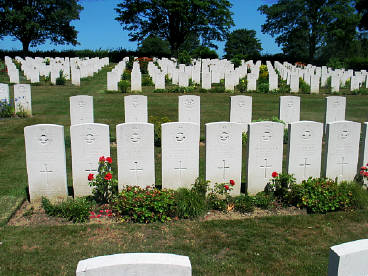
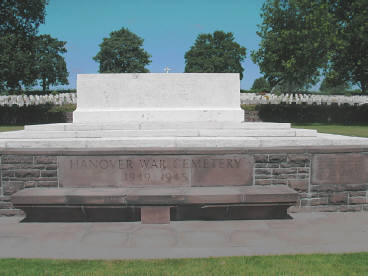
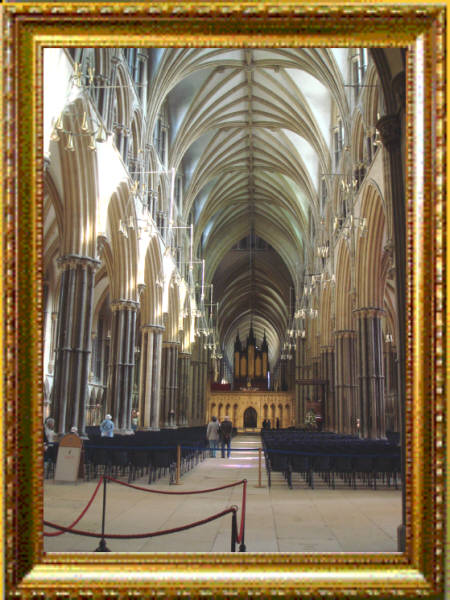
He trained as a navigator and by 1943 had joined 100 Squadron Bomber Command based at Waltham in Eastern England. By that time he had also been promoted to Flight Sergeant and was flying in Lancaster Bombers on raids into Germany.
Tragically, the inevitable happened. He became another casualty of the war when his aircraft came down near Hanover. The details are sparse, in fact all we know for certain is that his aircraft was taking part on one of the mass air raids on Berlin. Whether it was shot down on the way to Berlin or coming home is not clear. But the whole crew of 7 perished on 2 January 1944.
AN APPRECIATION OF A MAN WHO DID HIS DUTY
Flight Sergeant Jack Dwelly RAF
Bomber Command - Lost 2 January 1944
By Martin Ough Dealy
Uncle Jack, as I knew him in Mexico in the late 1930's, was a family friend, a special “compadre' of my father's. I am not sure how Dad got to know him, but the friendship went at least as far back as 1927 when Dad was 18 and Jack about 15. The following photo taken in the state of Hidalgo about then is my evidence for this assertion.
Jack's father at the time was working for the "La Blanca” silver mine in Pachuca and would have been one of the many expatriates from England employed there at that time. Old man Dwelly would have had close contacts with my grandfather S. W Ough who was then the General Manager of British owned “La Maravillas" mine company and the Xotol mine above the town..
So my guess is that Uncle Jack and Dad at that time were young men at the start of their adventurous lives making the most of the few amenities offered by the mining community and the town of Pachuca.
Jack left Pachuca sometime after and ended up for a while in Nigeria working in the Bukuru Tin mine. I don't know what he was doing there, but it must have been a rough and outlandish place, judging from the few photos left behind.
Anyhow, Uncle Jack came back to work in Pachuca in the early 1930's and my recollection of him was as a jolly, good humoured man who always had time for fun and games. He seemed to have a permanent smile on his thin face . He had a puckish sense of humour and sometimes combined this with his ability to play the keyboard. Once he was heard to be playing the church organ during a Sunday morning service. It seemed he was playing a bland sounding typical C of E hymn, but if you listened carefully and pieced the strains together it became a very popular jazz tune, but played very slowly! He must have bamboozled most if not all the congregation of strait laced mining families because there were no complaints.
Uncle Jack was not a frequent visitor at home. In fact my memories of him are confined to times when he occasionally played tennis at the Pachuca Club or when he joined one of the family picnics. But every time he appeared he was like a magnet, becoming the centre of attention of any youngsters around . He wasn't one for ignoring small, attention demanding children. He was more the Pied Piper always joining in the fun or more often than not instigating it.
Then the war came. Uncle Jack, like a number of other single young expatriate men in Pachuca went off to do "his bit". Uncle Jack's family must also have returned to the UK by then. I cannot remember specifically when Uncle Jack left to join up, but it would have been by 1941. Dad must have kept in touch because there are some pictures of Uncle Jack in RAF uniform taken in 1942. By then he had qualified as air crew and was flying in bombers.
At that time I was told nothing of his loss, I suppose I was deemed to be too young. But later, just before I left for England in 1952, Dad did ask me to look up Uncle Jack's mother and to pass on the family's condolences and best wishes. I was to carry a special message from my grandmother "Annie" Ough to her namesake Florence Dwelly, as they had been close friends in pre war days.
I did not get round to this for another 12 months or so, but eventually made contact with Mrs Dwelly and arranged to see her during a short week end leave from the Army. She was living then as a widow in a suburb of London. I remember calling on her in the uniform of a private soldier. In those days just after the war and at the time when national Service was in full swing, it was still the customary thing to do.
But I felt more than somewhat ill at ease. Still a rather naive and inexperienced teenager in what was to me a foreign land I found it very difficult to pass on the messages of condolence. I hardly knew what to say or indeed how to say it. I was very wary of causing offence and hurt, especially to someone I hardly knew.
But she welcomed me in and offered the traditional cup of tea which I gladly accepted. However it was obvious , that she too was finding my visit difficult . It was clear that she was still suffering from the loss both of her husband and of her only son and so was unhappy to talk about either or of her time in Mexico. I did try to talk about Mexico, but that also seemed to have sad memories for her and there really was not much common ground between us to keep the contact going for long. But just before I took my leave I asked her whether she knew where Jack was buried so that I could pay my respects. She could not say, so the matter was almost left there. But then, just as I was leaving, she unwound a bit and asked me to see if I could find the grave for her. That I gladly undertook to do, little knowing that it would prove impossible whilst she was still alive, Not many months afterwards Mrs. Dwelly passed away herself. So that promise was left unfulfilled for another 53 years.
Finally an opportunity to do something about the promise eventuated in 2006. A railway holiday through Europe made it possible to visit Hanover. In the days preceding the trip I had found out from the Commonwealth War Graves Commission where Uncle Jack had been buried and so it was relatively easy to find his grave. I was also able to confirm that Uncle Jack's name is inscribed in the RAF Bomber Command Memorial at Lincoln Cathedral not far from the base where he was stationed.
So there it is. I hope that this will serve in a small and very inadequate way as an appreciation for a man who went away to do his duty, but who, like so many others, did not come back.His memory, and his contribution to the cause of freedom and peace, must never be forgotten.